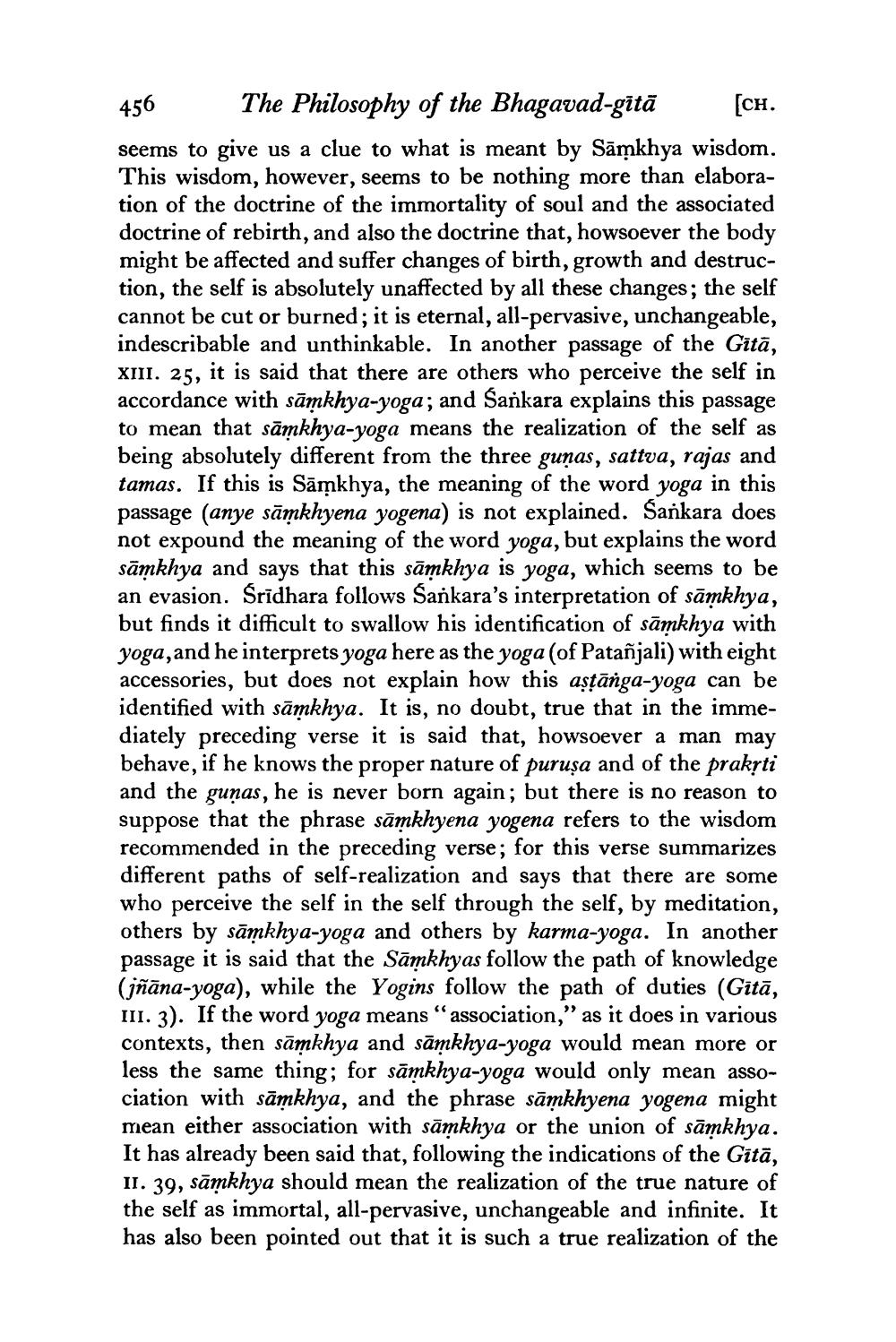________________
456
The Philosophy of the Bhagavad-gitā
[CH.
seems to give us a clue to what is meant by Samkhya wisdom. This wisdom, however, seems to be nothing more than elaboration of the doctrine of the immortality of soul and the associated doctrine of rebirth, and also the doctrine that, howsoever the body might be affected and suffer changes of birth, growth and destruction, the self is absolutely unaffected by all these changes; the self cannot be cut or burned; it is eternal, all-pervasive, unchangeable, indescribable and unthinkable. In another passage of the Gitā, XIII. 25, it is said that there are others who perceive the self in accordance with samkhya-yoga; and Sankara explains this passage to mean that sāmkhya-yoga means the realization of the self as being absolutely different from the three gunas, sattva, rajas and tamas. If this is Samkhya, the meaning of the word yoga in this passage (anye samkhyena yogena) is not explained. Sankara does not expound the meaning of the word yoga, but explains the word sāmkhya and says that this sāmkhya is yoga, which seems to be an evasion. Śrīdhara follows Sankara's interpretation of samkhya, but finds it difficult to swallow his identification of sāmkhya with yoga, and he interprets yoga here as the yoga (of Patanjali) with eight accessories, but does not explain how this aṣṭānga-yoga can be identified with sāmkhya. It is, no doubt, true that in the immediately preceding verse it is said that, howsoever a man may behave, if he knows the proper nature of purușa and of the prakṛti and the gunas, he is never born again; but there is no reason to suppose that the phrase samkhyena yogena refers to the wisdom recommended in the preceding verse; for this verse summarizes different paths of self-realization and says that there are some who perceive the self in the self through the self, by meditation, others by samkhya-yoga and others by karma-yoga. In another passage it is said that the Samkhyas follow the path of knowledge (jñāna-yoga), while the Yogins follow the path of duties (Gītā, III. 3). If the word yoga means "association," as it does in various contexts, then sāṇkhya and sāmkhya-yoga would mean more or less the same thing; for samkhya-yoga would only mean association with samkhya, and the phrase samkhyena yogena might mean either association with samkhya or the union of samkhya. It has already been said that, following the indications of the Gitā, II. 39, sāmkhya should mean the realization of the true nature of the self as immortal, all-pervasive, unchangeable and infinite. It has also been pointed out that it is such a true realization of the




